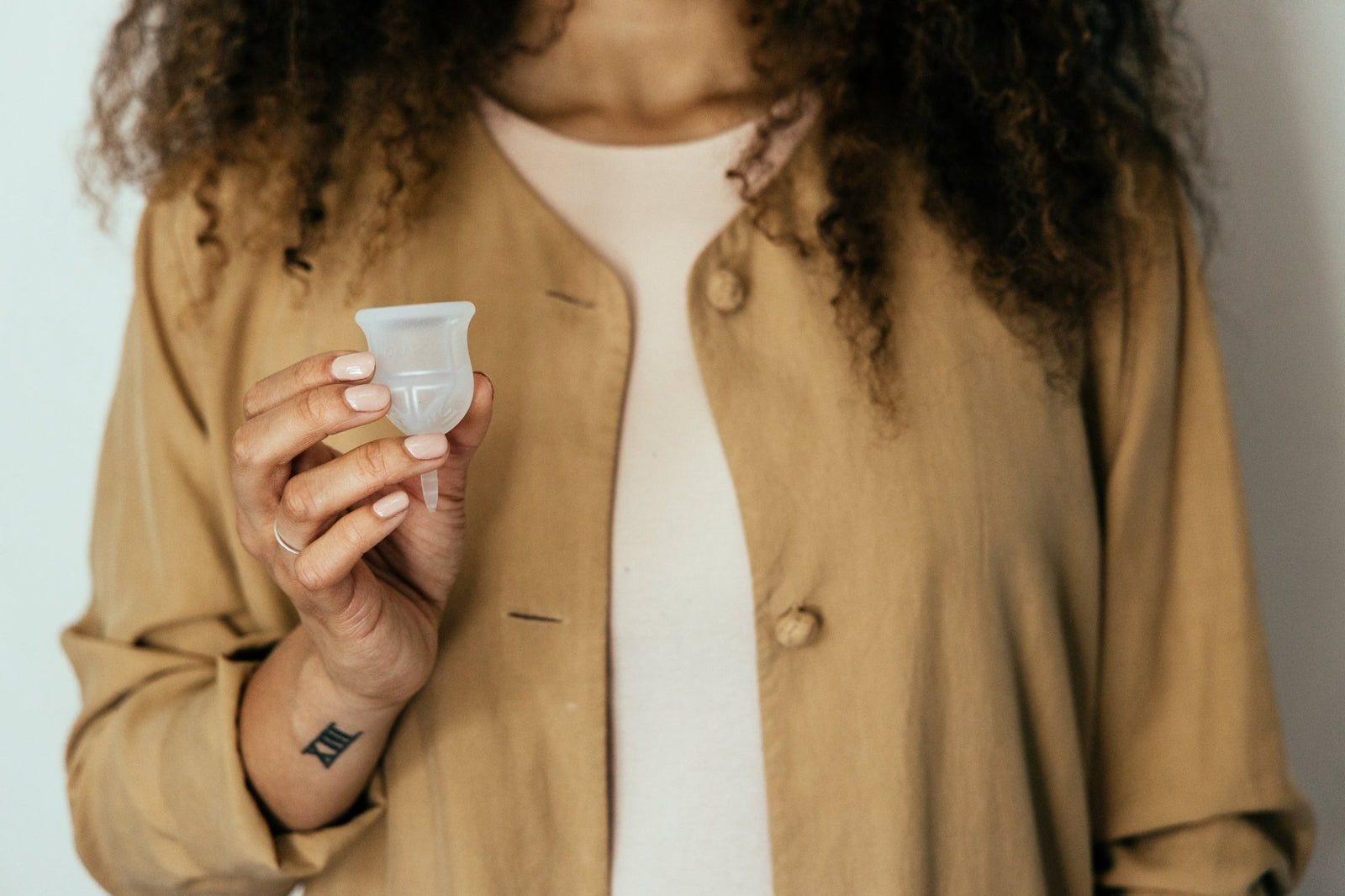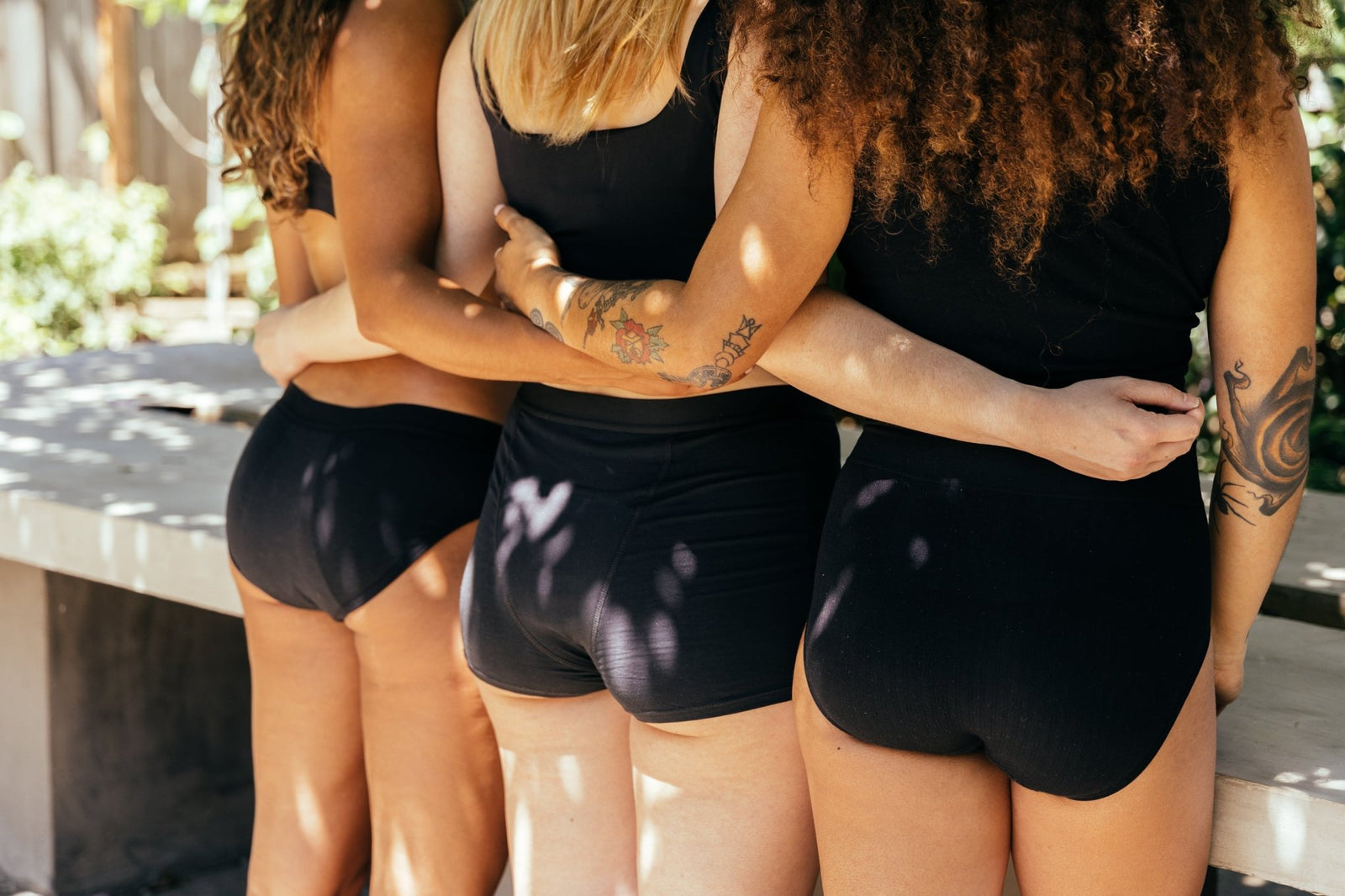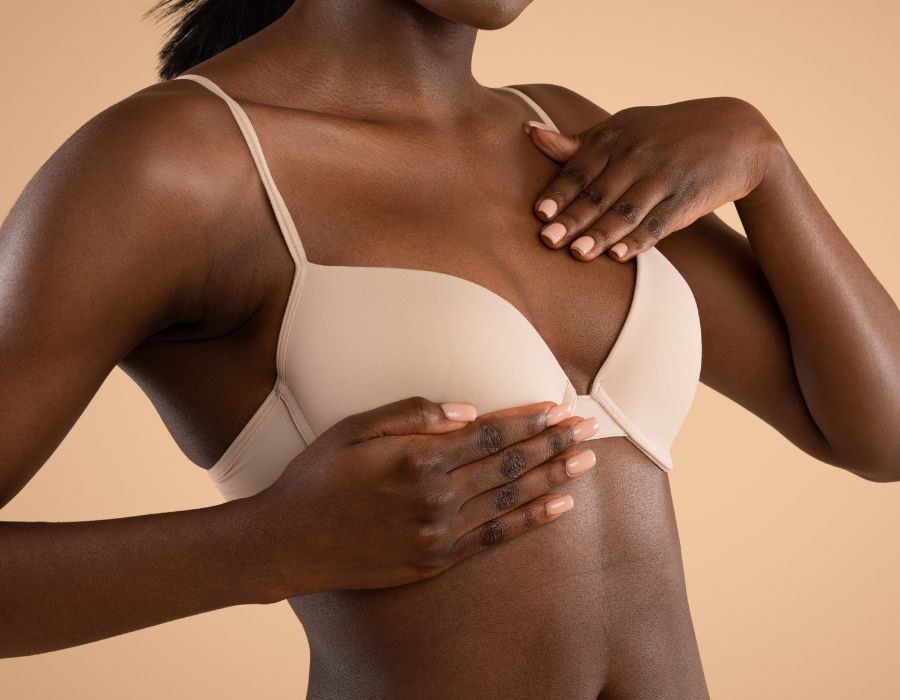Is it normal to feel tired during your period?
Your period has arrived for the month, and brought some extra luggage? During your period, you may experience cramps, bloating, fatigue, interrupted sleep, andmood swings. Although the symptoms vary from person to person, most of us suffer from fatigue during menstruation.
Feeling extra tired during your period is 100% normal and shouldn’t be cause for concern alone. It is perfectly okay to slow down and get more rest during your period and the week leading up to it, but don’t let fatigue and discomfort ruin your week! There are simple and easy ways to boost your energy levels when you need it and make your period more comfortable. Let’s take a look at a few reasons why you might feel more tired during your period and some self-care tips that might make that time of the month just a wee bit better!
Hormone Changes Impact Your Energy

Photo by Kinga Cichewicz
There are four phases to your menstrual cycle and the hormonal changes cause your energy to fluctuate––that’s why some days you may wake up with tons of energy, and other days you find it hard to get yourself out of bed.
Phase 1: The Menstrual Phase
The first phase of your menstrual cycle. During this time, your estrogen and progesterone levels are low. This causes your uterine lining to shed, aka “your period”. Energy levels are at the lowest during this time, and you may find yourself feeling extra tired. The menstrual phase lasts four to seven days on average.
Phase 2: The Follicular Phase
The second phase in your cycle where estrogen rises as an egg prepares to be released from the ovaries. During this phase, you may feel a boost of energy and your mood is likely to improve. This is a great time to be productive, hang out with friends, and exercise!
Phase 3: The Ovulation Phase
When the egg is finally released from the ovary. This time is also known as the middle of your cycle. Your levels of estrogen and progesterone reach their peak. You may notice that you feel much more confident, energized, and your sex drive will be at its highest.
Phase 4: The Luteal Phase
The final phase of the menstrual cycle. Estrogen and testosterone start to decline, and your body will start to produce progesterone. In the first half of this phase, you will find yourself beginning to relax and wind down. This is a great time to cancel upcoming social events, prepare for a few cozy days at home, and complete any lingering items on your to-do list. The second half of this phase can be difficult with Premenstrual syndrome (PMS) symptoms like anxiety, bloating, and mood swings can set in. Practicing self-care during this time is crucial.
Iron Dificiency or Lack of Magnesium
Another possible reason why you may feel fatigued and weak during your period is the lack of iron and/or magnesium in your body. The amount of blood lost during a menstrual cycle varies from person to person. With the average period lasts 4 to 5 days with the loss of 2 to 3 tablespoons of blood on average.
However, some bleed for more than 7 days and lose twice as much blood. This is commonly known as menorrhagia. In heavy periods, the loss of too much blood can lead to aniron deficiency anemia (lack of healthy red blood cells).
Lack of blood cells means a lack of oxygen and therefore lack of energy. This condition causes symptoms like fatigue and dizziness during menstruation. Magnesium deficiency can also cause fatigue. During your period, your body produces estrogen and progesterone hormones. These hormone levels will be high, which results in your magnesium levels being much lower than normal. Similar to iron deficiency anemia, magnesium deficiency can have you feeling tired and weak.
How can I incorporate more iron and magnesium into my diet?
Some of the best sources of iron include:
- Iron Supplements (consult your doctor first - too much iron can be harmful)
- Red Meat (Beef, Pork, Lamb)
- Fish or Shellfish (Salmon, Tuna)
- Dried Fruits/Nuts (Raisins, Prunes, Pistachios)
- Magnesium Supplements
- Fresh Fruit (Bananas, Raspberries, Passion Fruit)
- Vegetables (Leafy Greens, Broccoli)
- Dairy Products (Milk or Soy Milk, Yogurt)
If you bleed a lot during your period and wear a copper IUD, you may need to consider another contraceptive. With your doctor or gynecologist, you can choose a more suitable and less stressful method of contraception. A copper IUD can cause more bleeding and cramping for some during their period, especially for the first 3-6 months after implantation.
Consult your doctor before adding supplements, making diet changes, and if you’re experiencing symptoms of an iron or magnesium deficiency.
Avoid Blood Sugar Crashing - a Good Diet Can Fight Fatigue During Your Period

Photo by Liza Summer
Why do I have cravings on my period?
Your hormones are fluctuating and sensitive during this time of the month, which may lead to cravings, especially for sugary, salty, or processed foods. Taking all of these hormonal changes into account, it is totally normal to crave sweet treats like ice cream, chocolate, and pastries. It’s tempting to sit on the couch and eat ice cream from the tub all day. However, consuming these treats in moderation is the way to go. Consuming too much sugar can result in a sudden plunge in your insulin levels, which often leads to fatigue and "sugar-crashes".
What should I eat and drink during my period?
It is okay to give in to your cravings, but it’s important to maintain a balanced diet during this time. Choose foods rich in fiber, vitamins, and minerals. Protein is also necessary because it promotes the production of important hormones and enzymes to maintain balance. Nourish your body with these items:
- Protein (Chicken, Eggs, Nuts)
- Lean Meat (Beef, Pork, Lamb)
- Fresh Fruits and Vegetables (Berries, Watermelon, Spinach, Kale)
- Vegetarian/Vegan Option (Quinoa, Tofu, Lentils, Beans)
- Soup/Beverages (Water, Fruit Smoothies, Hot Tea, Soup, Broths)
- Sweet Alternatives (Dark Chocolate, Yogurt, Fruits)
It’s also important to stay as hydrated as possible, to limit fatigue during your period. Drinking a sufficient amount of water will help flush out your system and may also help relieve other period-related symptoms like migraines, bloating, and cramps. Increase your liquid intake by drinking water, smoothies, tea, soups, and even broths!
Consult with your physician if you have any questions or concerns, and before beginning any diet or nutrition plan.
Physical Activity - Let’s get moving!
It’s tempting to lay in bed all day and binge-watch the new season of Stranger Things. As paradoxical as it may seem, physical activity actually helps reduce fatigue during menstruation. Listen to your body and work with an intensity level that feels right for you. There are a variety of low-impact activities to choose from like yoga, pilates, swimming, and cycling. Moving your body and staying active can help reduce cramps and boost your mood.
If pads or tampons are uncomfortable for you during your workouts, maybe try a reusable menstrual cup, like VOXAPOD.
A menstrual cup is worn internally and prevents leaks for up to 12 hours. They also help maintain your pH balance and prevent dryness and irritation when moving around. If you’re afraid of leaks or new to menstrual cups, you can always do a practice round at home first until you feel comfortable wearing it out and about. They are comfortable, effective, and won’t show under your workout clothes.
Physical activity can help prevent PMS symptoms (bloating, stomach aches, mood swings, etc.), fight against painful periods, and reduce fatigue during menstruation. You don’t have to run laps around the track. Some light stretching or even a quick walk around the neighborhood would be a great way to boost your energy and mood. If you’re feeling frisky, sex can be a great form of exercise, too. Remember to lay down some towels first!
Consult with your physician if you have any questions or concerns, and before beginning any exercise program or plan.
Stress
Everyone experiences period fatigue, and stress can play a big role in the menstrual cycle. So, how does stress affect your period? When stressed, the body produces something called cortisol and corticotropin-releasing hormone (CRH). With high levels of cortisol and CRH, these two hormones can suppress the normal levels of reproductive hormones that control your menstrual cycle. Has your period ever been early, late, or not even showed up at all? Any shift in hormonal function has the capacity to change bleeding patterns and cause you to feel fatigued and other period-related symptoms. So yes, stress can definitely impact your cycle!
Ways to help manage stress effectively on your period
We all experience some level of stress in our lives, and it’s important to know how to manage that stress in a healthy and effective way. We cover 7 Natural Ways to Deal with Stress During Your Period more in-depth in another blog, but here’s a quick recap on natural remedies for managing stress during your period:- Eat a well-balanced diet
- Exercise regularly
- Get plenty of sleep
- Spend time with friends
- Herbal supplements and tea
- Give relaxing techniques a try
- Avoid alcohol and caffeine during your period
When you should consult your doctor
Everyone’s body is different, so their periods are different too. Symptoms like fatigue should not be a cause for concern, but if fatigue is interfering with your daily life (work, school, social plans), it may be time to visit your doctor. There could be potential underlying issues that are at play. Watch out for the signs and contact your doctor if you’re experiencing any of the following:- Irregular periods or no period at all
- Heavy bleeding (menorrhagia)
- Extreme body pains and aches
- Light Headed and dizzy when standing
How To Deal With Menstrual Fatigue

Photo by Alex Green
The first step to dealing with period exhaustion is to understand where it’s coming from. While you might not be able to get to the bottom of it, there are some steps you can take to help you figure it out.
Consult Your Doctor
If your period fatigue feels unmanageable, or is greatly interfering with your daily period life, ask your doctor. Keep track of other symptoms you’re experiencing like cramps, nausea, and bloating. It’s also helpful to track when around your period you tend to feel the most tired.
Get Your Mineral Levels Tested
Your body depends on essential minerals, like iron and magnesium, to stay healthy and vital. When these are low, like in the case of anemia, period symptoms can be worsened. Ask your provider about getting these tested. If they are low, taking supplements, and eating mineral rich foods, can help combat menstrual fatigue.
Avoid Caffeine and Sugar
While it can be awfully tempting to reach for a third cup of coffee and a sugary treat while on your period, it may be counterproductive towards your energy levels. You may feel a short uptick of energy, followed by a big crash, making menstrual fatigue that much more unbearable. Instead try drinking a mellow green tea, and munching on a sugar-free dark chocolate bar.
Holistic Practitioners
There’s plenty of holistic health modalities that have a variety of tools to help you manage menstrual fatigue, and other period symptoms. Chinese medicine practitioners useacupuncture, herbalism, and other methods to help regulate period symptoms. Functional medicine doctors and providers combine allopathic medicine with more natural remedies to help treat period symptoms on a holistic level.
Plan Ahead
While this may be easier said than done, try to plan ahead. Some level of menstrual fatigue may be inevitable, so if you have the ability to schedule your days to accommodate this, it can keep you from feeling so overwhelmed.
Try tracking your cycle, so that you know when you tend to be the most fatigued. Avoid scheduling meetings, due dates, and social gatherings around these times. Be easy on yourself, if you can’t totally relax, it’s ok to do the bare minimum, before retiring for the day
One of the best period self-care tips we can give is to listen to your body. If you need extra rest on your period, please do your best to do that. You deserve it.

Maria Laura Cordoba is a lifelong learner, avid traveler, and tea lover. While she was born in Venezuela, she’s lived on four continents and speaks Spanish, French, and English––currently residing in South Korea. Her varied cultural experiences have broadened her worldview and shaped the global citizen she is today, fueling her desire for collective change to make the earth an equal place for everyone independent of gender, race, or ethnicity. She is a passionate animal rights activist and enjoys exploring Korean food markets, vegan cuisine, and getting lost in nature with her dog.




Evanise Francisco
February 03, 2026
HIRE THE HACK ANGELS // A CERTIFIED CRYPTOCURRENCY RECOVERY EXPERT
A few months ago, I found myself in a precarious situation when I fell victim to a deceptive trading platform. I lost £730,000 to a fraudulent cryptocurrency investment broker. I was scammed multiple times by individuals who promised to recover my lost funds but only added to my distress. I was devastated. I reached a point where I was unsure if there was any hope left. It was then that I confided in a close friend who noticed my struggle and offered to help. He introduced me to a crypto recovery group known as THE HACK ANGELS RECOVERY EXPERT. The expert team worked tirelessly to trace and retrieve my funds, they focused on helping individuals and businesses recover their lost or stolen assets. The team’s expertise in utilizing cutting-edge technology and industry knowledge to track and locate stolen assets, if you are a victim and need your funds returned, use any of the details below:
WhatsApp (+1(520)200-2320
Email at support@thehackangels.com
Website at www.thehackangels.com
They helped me regain my peace of mind in addition to returning my cryptocurrency back to my wallet.